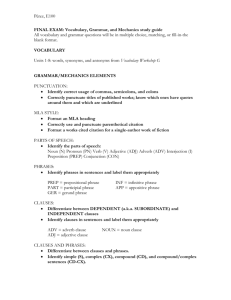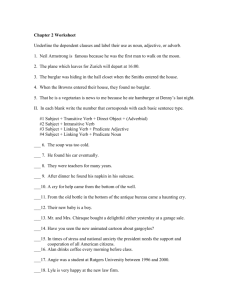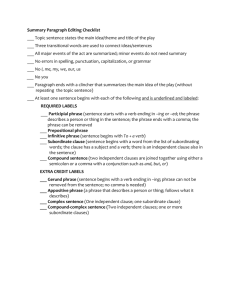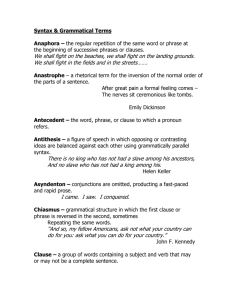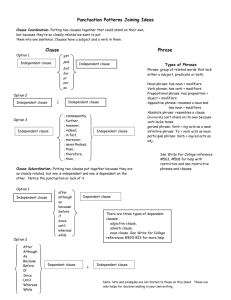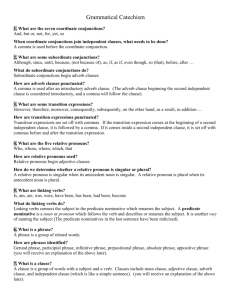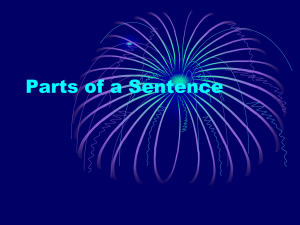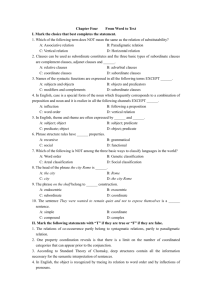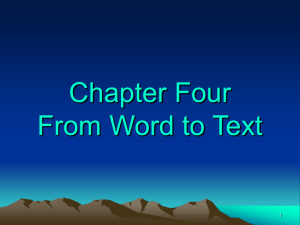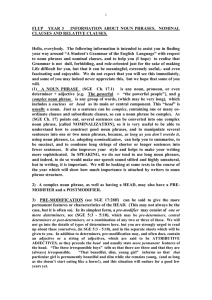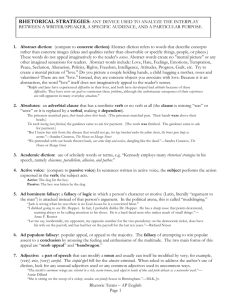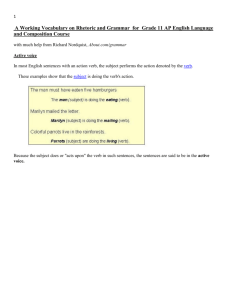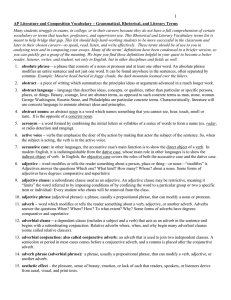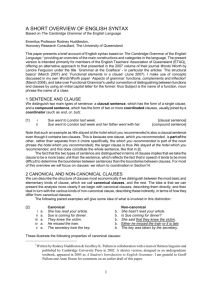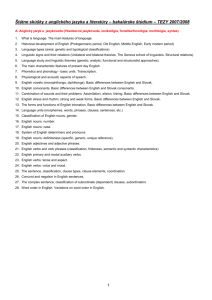Syntax Vocabulary
advertisement
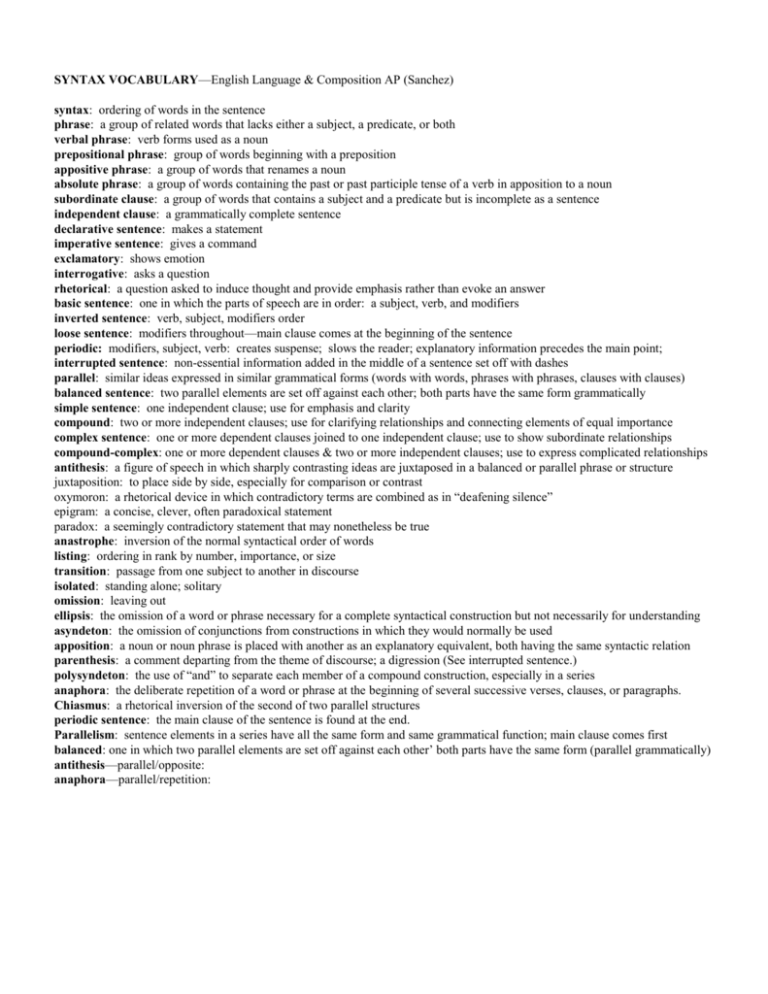
SYNTAX VOCABULARY—English Language & Composition AP (Sanchez) syntax: ordering of words in the sentence phrase: a group of related words that lacks either a subject, a predicate, or both verbal phrase: verb forms used as a noun prepositional phrase: group of words beginning with a preposition appositive phrase: a group of words that renames a noun absolute phrase: a group of words containing the past or past participle tense of a verb in apposition to a noun subordinate clause: a group of words that contains a subject and a predicate but is incomplete as a sentence independent clause: a grammatically complete sentence declarative sentence: makes a statement imperative sentence: gives a command exclamatory: shows emotion interrogative: asks a question rhetorical: a question asked to induce thought and provide emphasis rather than evoke an answer basic sentence: one in which the parts of speech are in order: a subject, verb, and modifiers inverted sentence: verb, subject, modifiers order loose sentence: modifiers throughout—main clause comes at the beginning of the sentence periodic: modifiers, subject, verb: creates suspense; slows the reader; explanatory information precedes the main point; interrupted sentence: non-essential information added in the middle of a sentence set off with dashes parallel: similar ideas expressed in similar grammatical forms (words with words, phrases with phrases, clauses with clauses) balanced sentence: two parallel elements are set off against each other; both parts have the same form grammatically simple sentence: one independent clause; use for emphasis and clarity compound: two or more independent clauses; use for clarifying relationships and connecting elements of equal importance complex sentence: one or more dependent clauses joined to one independent clause; use to show subordinate relationships compound-complex: one or more dependent clauses & two or more independent clauses; use to express complicated relationships antithesis: a figure of speech in which sharply contrasting ideas are juxtaposed in a balanced or parallel phrase or structure juxtaposition: to place side by side, especially for comparison or contrast oxymoron: a rhetorical device in which contradictory terms are combined as in “deafening silence” epigram: a concise, clever, often paradoxical statement paradox: a seemingly contradictory statement that may nonetheless be true anastrophe: inversion of the normal syntactical order of words listing: ordering in rank by number, importance, or size transition: passage from one subject to another in discourse isolated: standing alone; solitary omission: leaving out ellipsis: the omission of a word or phrase necessary for a complete syntactical construction but not necessarily for understanding asyndeton: the omission of conjunctions from constructions in which they would normally be used apposition: a noun or noun phrase is placed with another as an explanatory equivalent, both having the same syntactic relation parenthesis: a comment departing from the theme of discourse; a digression (See interrupted sentence.) polysyndeton: the use of “and” to separate each member of a compound construction, especially in a series anaphora: the deliberate repetition of a word or phrase at the beginning of several successive verses, clauses, or paragraphs. Chiasmus: a rhetorical inversion of the second of two parallel structures periodic sentence: the main clause of the sentence is found at the end. Parallelism: sentence elements in a series have all the same form and same grammatical function; main clause comes first balanced: one in which two parallel elements are set off against each other’ both parts have the same form (parallel grammatically) antithesis—parallel/opposite: anaphora—parallel/repetition:



